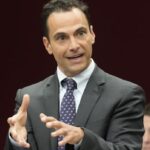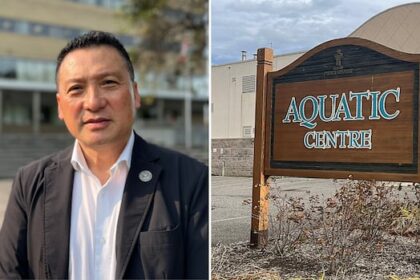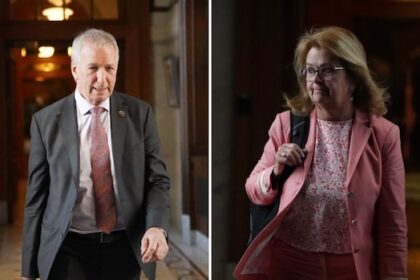MontrealIn the face of mounting pressure, the Quebec government is again trying to get groups representing doctors to get on board with the province’s health reforms — and says it’s open to negotiations.Health minister says part of new law won’t be applied as government seeks to find common groundListen to this articleEstimated 2 minutesThe audio version of this article is generated by text-to-speech, a technology based on artificial intelligence.Health Minister Christian Dubé says the government wants to find common ground with the groups representing doctors, and that it will not apply sections of Bill 2 regarding inspections. (Sylvain Roy Roussel/Radio-Canada)In the face of mounting pressure, the Quebec government is again trying to get groups representing doctors to get on board with the province’s health reforms — and says it’s open to negotiations.Health Minister Christian Dubé said Thursday that a controversial aspect of Bill 2 will not be applied to doctors.The legislation imposes a new remuneration system on doctors based on performance indicators, and includes provisions that gives the health minister powers to have inspectors and department chiefs check whether doctors were following the law.At a news conference Thursday, Dubé said the portion of the bill that relates to inspections would not be applied — although it will remain in the legislation, which has already passed into law.Dubé said his government has been flexible and offered to make a number of concessions, and he wants to sit down with the main doctors’ federations to negotiate.Physicians have been complaining about the health reforms for months.In May, the Coalition Avenir Québec government tabled legislation introducing the changes.But after months of negotiations that essentially went nowhere, the province tabled special legislation — Bill 2 — and forced its adoption by invoking closure.Since Bill 2 passed last month, a number of doctors have said they will leave the province or the profession, and some clinics with a large number of patients have said they will have to close.The uproar was apparent during a massive protest at Montreal’s Bell Centre last weekend.Treasury Board president France-Élaine Duranceau, who is also on the file, said the latest concession is a sign the government is open to finding common ground.“We need you,” Duranceau said Thursday. “We want to reiterate we are open to discussions.” ABOUT THE AUTHORBenjamin Shingler is a reporter based in Montreal covering social issues and Quebec politics. He previously worked at The Canadian Press and the New Brunswick Telegraph-Journal, and is an alumnus of the Oxford Climate Journalism Network.
Wednesday, 4 Mar 2026
Canada – The Illusion
Search
Have an existing account?
Sign In
© 2022 Foxiz News Network. Ruby Design Company. All Rights Reserved.
You May also Like
- More News:
- history
- Standing Bear Network
- John Gonzalez
- ᐊᔭᐦᑊ ayahp — It happened
- Creation
- Beneath the Water
- Olympic gold medal
- Jim Thorpe
- type O blood
- the bringer of life
- Raven
- Wás’agi
- NoiseCat
- 'Sugarcane'
- The rivers still sing
- ᑲᓂᐸᐏᐟ ᒪᐢᑿ
- ᐅᑳᐤ okâw — We remember
- ᐊᓂᓈᐯᐃᐧᐣ aninâpêwin — Truth
- This is what it means to be human.
- Nokoma











